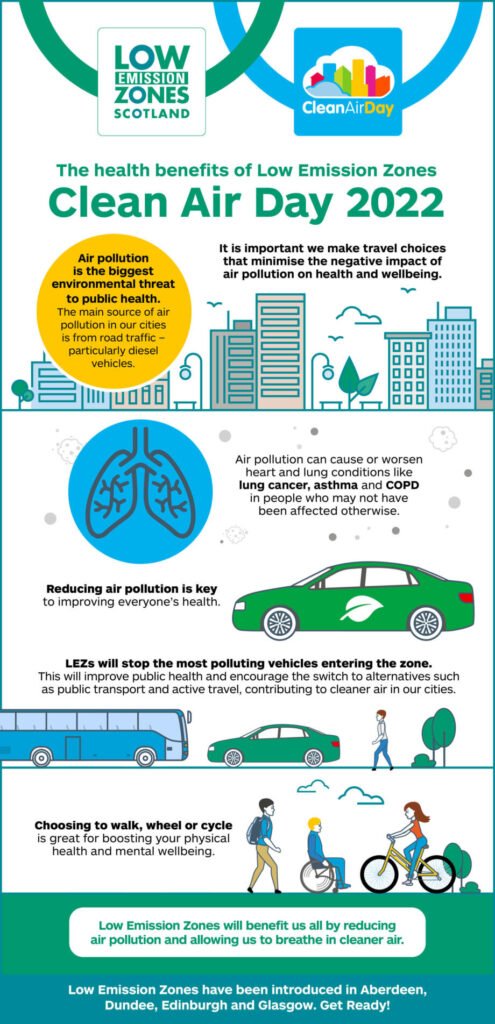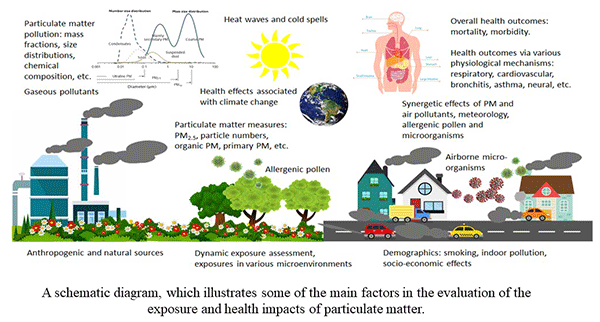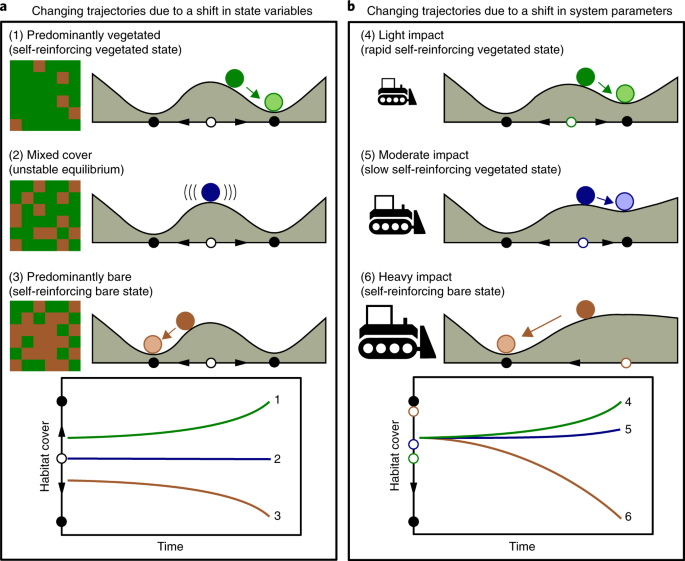In this article, we will explore the health benefits of zero emissions and how it leads to a cleaner environment for everyone. You will discover how reducing harmful pollutants in the air can improve respiratory health and reduce the risk of chronic illnesses. We will also discuss the positive impact of zero emissions on climate change and the importance of transitioning to cleaner energy sources. By the end of this article, you will have a better understanding of why zero emissions are crucial for our health and the health of our planet.
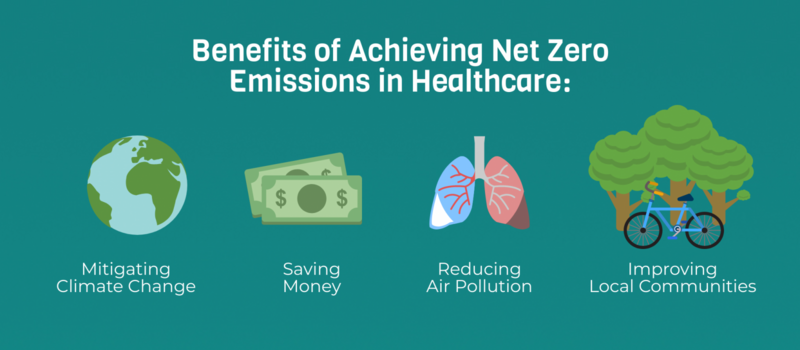
This image is property of sustainability.yale.edu.
Decreased Air Pollution
Improved Air Quality
When you think about pollution, what often comes to mind is the thick smog hanging over a busy city or the hazy layer of pollution that blankets our skies. However, with the implementation of zero emissions policies and the transition to cleaner energy sources, we can significantly improve the air quality in our communities.
Reducing air pollution has numerous health benefits, and one of the most immediate is improved air quality. When we decrease the amount of harmful pollutants in the air, we reduce the risk of respiratory problems and other health issues associated with breathing in polluted air.
Reduced Health Risks
Inhaling polluted air can have serious health consequences, including respiratory diseases, cardiovascular problems, and even cancer. By minimizing air pollution through zero emissions initiatives, we can significantly reduce these health risks and create a healthier environment for everyone.
Improved Respiratory Health
Lower Rates of Asthma
Asthma is a chronic respiratory condition that affects millions of people worldwide. Polluted air can trigger asthma attacks and exacerbate the symptoms of those living with this condition. By decreasing air pollution, we can help reduce the prevalence of asthma in our communities and improve respiratory health for all.
Reduced Lung Infections
Breathing in polluted air can weaken our immune system, making us more susceptible to respiratory infections. By transitioning to a zero emissions model, we can minimize air pollution and decrease the incidence of lung infections, which can be especially beneficial for vulnerable populations such as children and the elderly.
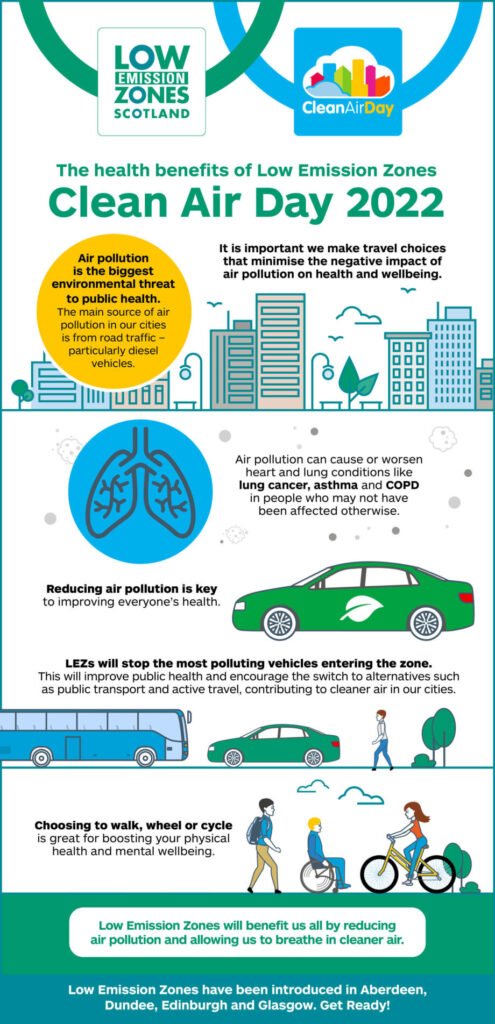
This image is property of www.lowemissionzones.scot.
Enhanced Cardiovascular Health
Lower Risk of Heart Disease
Air pollution has been linked to an increased risk of heart disease and other cardiovascular conditions. The fine particles and pollutants in polluted air can enter our bloodstream and cause inflammation, leading to the development of heart problems. By reducing air pollution, we can lower the risk of heart disease and promote better cardiovascular health.
Reduced Strokes
Studies have also shown a correlation between exposure to air pollution and an increased risk of strokes. Breathing in polluted air can lead to the formation of blood clots and the narrowing of blood vessels, which can ultimately result in strokes. By improving air quality through zero emissions policies, we can decrease the incidence of strokes and improve overall cardiovascular health.
Lower Cancer Rates
Reduced Exposure to Carcinogens
Air pollution is known to contain carcinogens, substances that can cause cancer when exposed to for prolonged periods. By limiting air pollution, we can reduce the exposure to these harmful carcinogens and subsequently decrease the incidence of certain types of cancer.
Decreased Cancer Incidence
Studies have linked air pollution to an increased risk of lung cancer, bladder cancer, and other types of cancer. By implementing zero emissions policies and reducing air pollution, we can help lower the rates of cancer in our communities and promote a healthier environment for everyone.
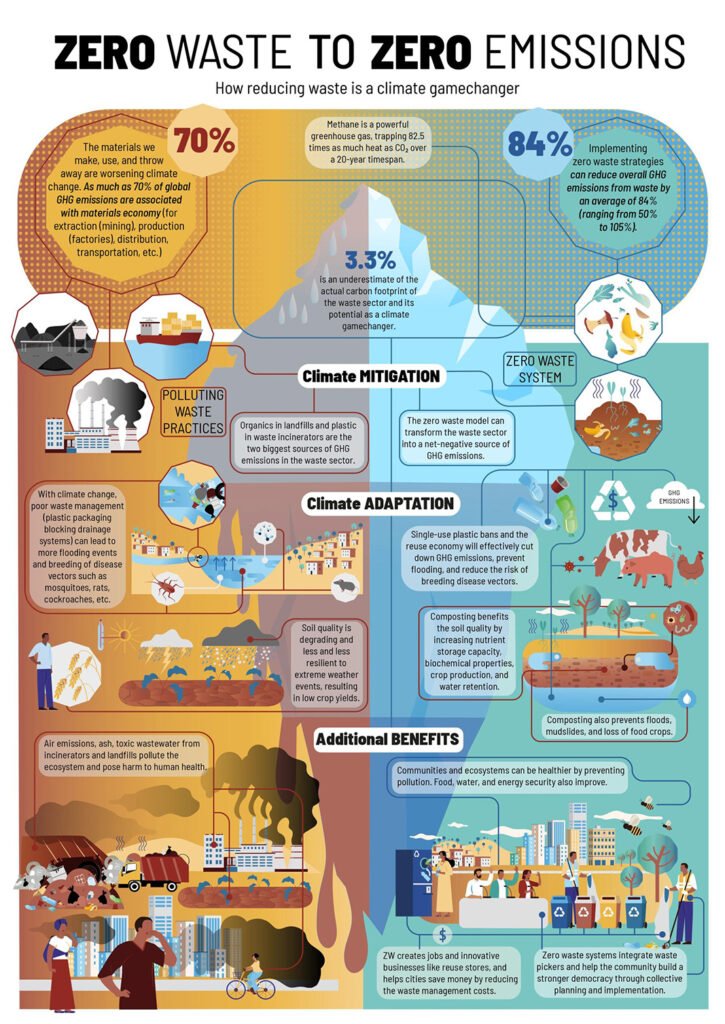
This image is property of www.biocycle.net.
Improved Mental Health
Reduced Anxiety and Depression
A cleaner environment has positive effects on our mental well-being. By reducing air pollution, we can create a healthier and more pleasant environment, leading to a reduction in anxiety and depression. Breathing in cleaner air can promote calmness and overall mental well-being, contributing to a happier and healthier lifestyle.
Better Cognitive Function
Air pollution has also been associated with cognitive impairments and a decline in brain function. By improving air quality through zero emissions initiatives, we can create an environment that promotes better cognitive function and mental clarity, allowing individuals to perform better in their daily activities and improve their overall quality of life.
Enhanced Physical Fitness
Increased Opportunities for Outdoor Activities
When the air quality is poor, it often discourages us from engaging in outdoor activities and exercise. By reducing air pollution, we can create more opportunities for individuals to enjoy outdoor activities, such as walking, jogging, or playing sports, encouraging a more active and physically fit lifestyle.
Better Exercise Tolerance
Breathing in polluted air can affect our lung function and make exercise more challenging. By improving air quality through zero emissions initiatives, we can enhance our exercise tolerance and make physical activities more enjoyable and beneficial for our overall fitness and well-being.
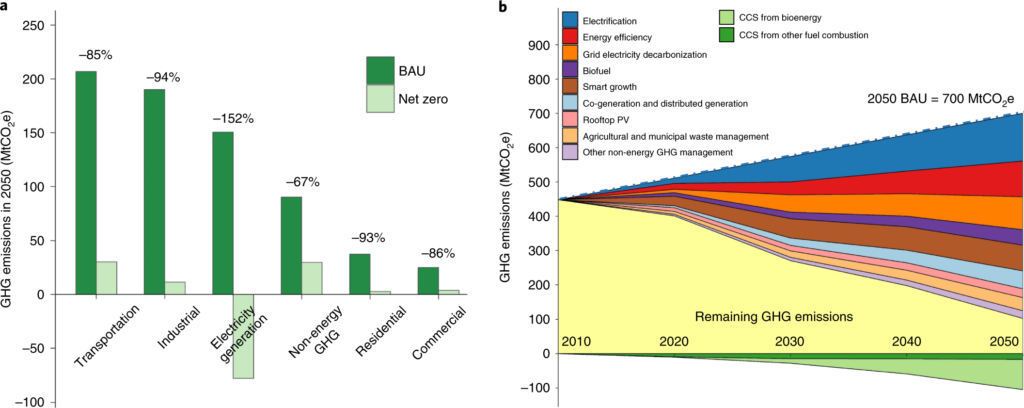
This image is property of media.springernature.com.
Improved Sleep Quality
Reduced Noise Pollution
Air pollution is not only about the particles suspended in the air but can also include noise pollution from traffic, industrial activities, and construction. By implementing zero emissions policies, we can reduce noise pollution levels, creating a quieter environment that promotes better sleep quality and improved rest and recovery.
Better Rest and Recovery
When we sleep in a polluted environment, our bodies are exposed to harmful toxins that can interfere with our rest and recovery. By improving air quality, we can create a healthier sleeping environment, promoting better rest and allowing our bodies to fully recover and recharge for the next day.
Positive Impact on Children’s Health
Reduced Respiratory Issues in Children
Children are particularly vulnerable to the health effects of air pollution. Their developing bodies and immune systems make them more susceptible to respiratory problems caused by polluted air. By prioritizing zero emissions policies, we can create a cleaner environment for children, reducing the risk of respiratory issues and promoting healthier growth and development.
Improved Cognitive Development
Air pollution has been linked to adverse effects on cognitive development in children. Exposure to pollutants can impair brain development and lead to learning difficulties and decreased cognitive abilities. By reducing air pollution, we can create an environment that supports optimal cognitive development in children, setting them up for success in their educational pursuits.

This image is property of www.gov.ca.gov.
Benefits for Vulnerable Populations
Decreased Health Disparities
Vulnerable populations, including low-income communities and minority groups, often bear the brunt of the health impacts of air pollution. By implementing zero emissions policies, we can address health disparities and ensure that everyone, regardless of their socio-economic status or ethnicity, has access to cleaner air and improved health outcomes.
Better Quality of Life for the Elderly
The elderly are also particularly vulnerable to the health effects of air pollution. By reducing air pollution, we can improve the quality of life for the elderly, allowing them to age in a healthier and more sustainable environment, with fewer respiratory issues and improved overall well-being.
Economic Benefits
Cost Savings in Healthcare
Reducing air pollution through zero emissions initiatives can lead to significant cost savings in healthcare. With fewer respiratory problems and other health issues resulting from polluted air, there is a decrease in the need for medical treatments and hospital admissions, resulting in lower healthcare costs for individuals and society as a whole.
Increased Productivity
A cleaner and healthier environment can also have positive economic implications. When individuals are healthier, they are more likely to be productive in their daily activities, whether it be at work, school, or in their personal lives. By improving air quality, we can promote productivity and contribute to a thriving economy.
Reduced Climate Change Effects
Mitigation of Extreme Weather Events
Reducing air pollution and transitioning to zero emissions sources can have a significant impact on mitigating climate change. By minimizing greenhouse gas emissions, we can help slow down the rate of global warming, reducing the frequency and severity of extreme weather events such as hurricanes, heatwaves, and wildfires.
Preservation of Ecosystems
Air pollution not only affects human health but also has detrimental effects on ecosystems and biodiversity. By implementing zero emissions policies, we can protect fragile ecosystems, promote biodiversity, and preserve the natural beauty of our planet for future generations to enjoy.
Decreased Water Contamination
Less Chemical Runoff
Air pollution can indirectly impact our water supply through chemical runoff. When pollutants settle on plants, trees, and other surfaces, they can be washed away by rain, contaminating our water sources. By reducing air pollution, we can minimize chemical runoff and promote cleaner and safer drinking water.
Healthier Drinking Water
Clean drinking water is essential for our health and well-being. By reducing air pollution, we can safeguard our water sources, ensuring that they remain clean and free from harmful contaminants. This, in turn, promotes better health outcomes and contributes to an improved quality of life for all.
Enhanced Food Safety
Reduced Pesticide Residue on Crops
Air pollution can carry pollutants that settle on agricultural crops, increasing the presence of pesticide residue. By transitioning to zero emissions and minimizing air pollution, we can reduce the amount of pollutants that settle on crops, promoting cleaner and safer food for consumption.
Improved Nutritional Value
Healthy soil and clean air play vital roles in the nutritional value of our food. By improving air quality and reducing pollution in agricultural areas, we can enhance the nutritional content of crops, providing individuals with access to more nutrient-rich and healthier food options.
Conclusion
Transitioning to a zero emissions model has numerous health benefits for individuals and communities alike. By reducing air pollution, we can improve air quality, enhance respiratory health, and reduce the risk of diseases such as asthma, cancer, and heart disease. Furthermore, a cleaner environment positively impacts mental health, physical fitness, and sleep quality.
Zero emissions policies also benefit vulnerable populations by decreasing health disparities and improving the quality of life for the elderly. The economic advantages are substantial, with cost savings in healthcare and increased productivity. Additionally, zero emissions efforts contribute to the reduction of climate change effects, preservation of ecosystems, and decreased water contamination.
Embracing a zero emissions future not only benefits our health but also ensures a cleaner environment for all, promoting a sustainable and thriving world for future generations. By prioritizing the health benefits of zero emissions, we can create a healthier and more prosperous future for everyone.

